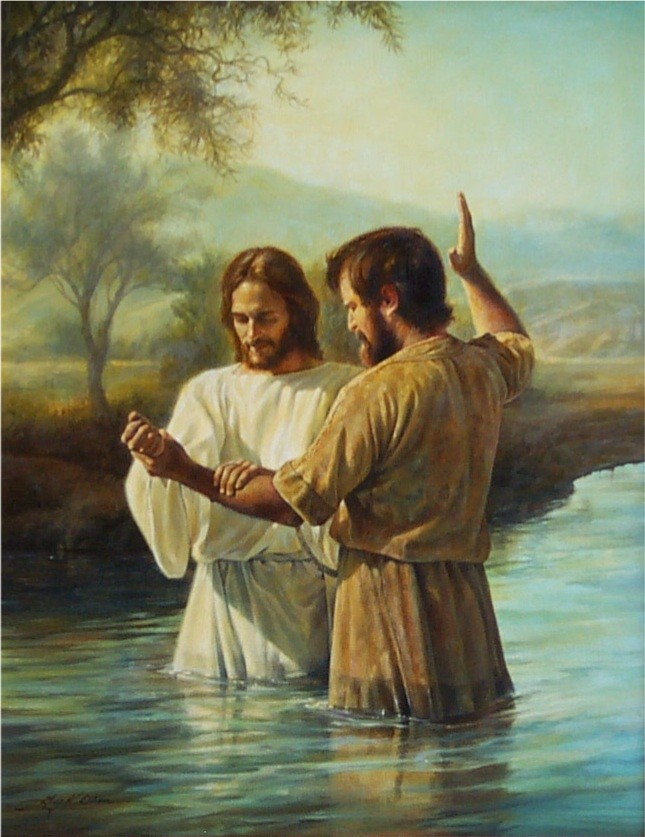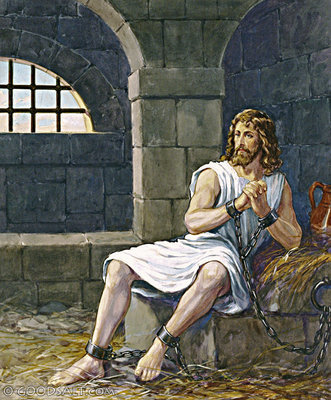
JOHN THE BAPTIST
BEHEADED.
NOT many months after Jesus began to preach, John the Baptist was cast into prison, as you will remember. John had not committed any crime, but had been bold enough to reprove Herod for his sins
The Herod that caused the children of Bethlehem to be slain, had now been dead for years. He was called Herod the Great and was the father of Herod Antipas, who put John in prison. Herod Antipas was not so cruel as his father, but he liked very much to please himself. He built the city of Tiberias, on the southwestern shore of the Sea of Galilee. There he had a palace where he held his court a part of the time.
But he had also another palace, at Machaerus, a very strong castle on the east side of the Dead Sea, and not far from Mount Nebo, where Moses died. This castle was built on the top of a very high rock; and it is said that its walls, many feet thick at the bottom, were in some places, two hundred feet high. The ruin of this castle still remain, and under their travelers, who have lately visited the spot find two very great dungeons, cut out of the solid rock. One of these gloomy cells was, doubtless, the prison where John the Baptist was confined for eighteen long months.
It seems that a few of John's disciples were sometimes allowed to visit him; for it was from this place that he sent some of them to Jesus to ask him if he were really the Messiah. Perhaps John wondered why Jesus, if he were the Christ, did not deliver him from prison. Herod took no risk in allowing the disciples of this man of God to visit him; for the rock on which the fortress was built descends almost perpendicularly, on three sides, into gorges so deep that one standing at the top can scarcely see to the bottom; and the other side is so steep and rugged, and so cut up by ravines and precipices, that a few men could easily beat back a large army before it could make its way to the lofty summit.
In this palace at Machaerus, Herod, on his birthday, held a great feast. While he and his lords were making merry over their wine, Salome, the daughter of Herodias, came in and danced before them. It was a custom of those days for some cunning person to amuse the company by acting out a story without speaking a word, all the while keeping time to music. This is what this damsel probably did; and she pleased Herod so well that he promised to give her whatever she should ask for, even to the half of his kingdom. Now the father of Salome, and the real husband of Herodias, was the half brother of Herod; but Herodias had left him without a cause, and was now living with Herod as his wife.
This, of course, was very wrong, and John reproved Herod for it, saying, "It is not lawful for thee to have thy brother Philip's wife." This made Herodias very angry at John; and so when Salome went to her to ask what she should demand of Herod, her mother thought it a good chance to get this holy man put out of the way. So the damsel, following her wicked mother's counsel, went in before Herord, and said,
"I will that thou give me presently the head of John the Baptist." Herod was now very sorry that he had made such a rash promise; but rather than break his oath, and displease the bad men that were feasting with him, he ordered his soldiers to go to the prison, cut off the head of John the Baptist, and present it to the damsel.
